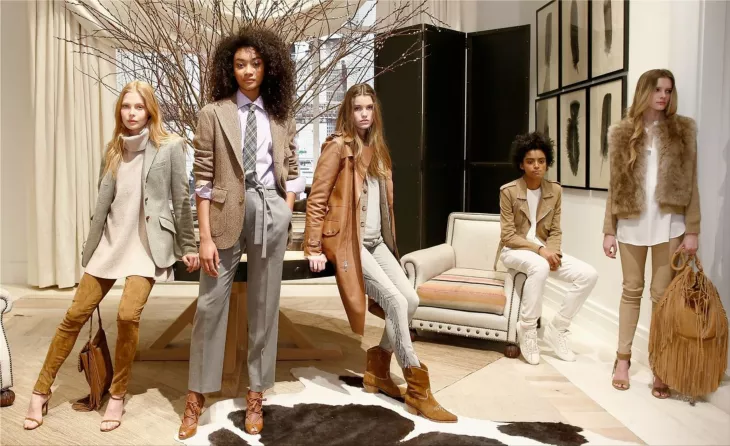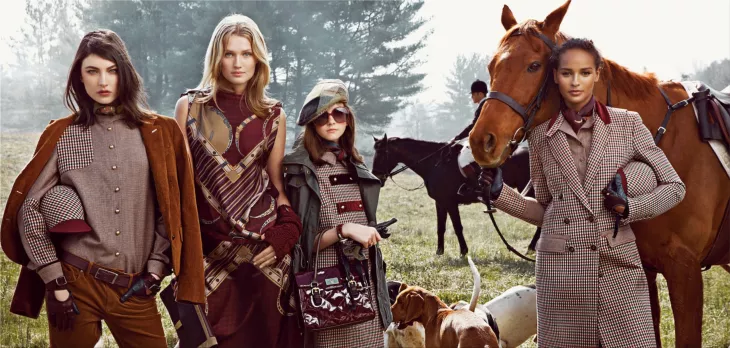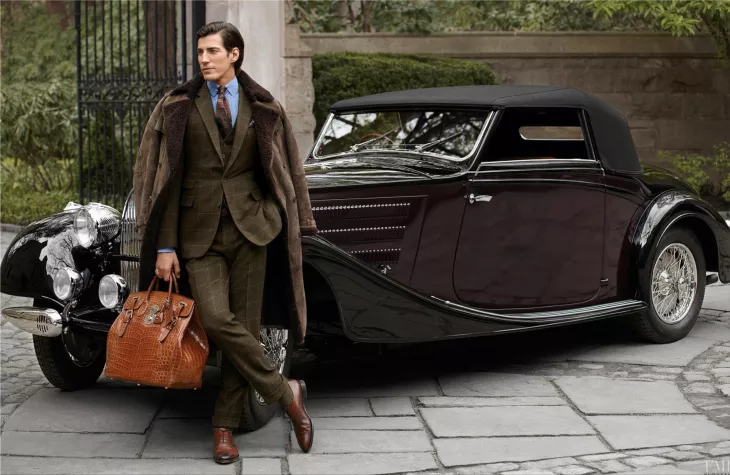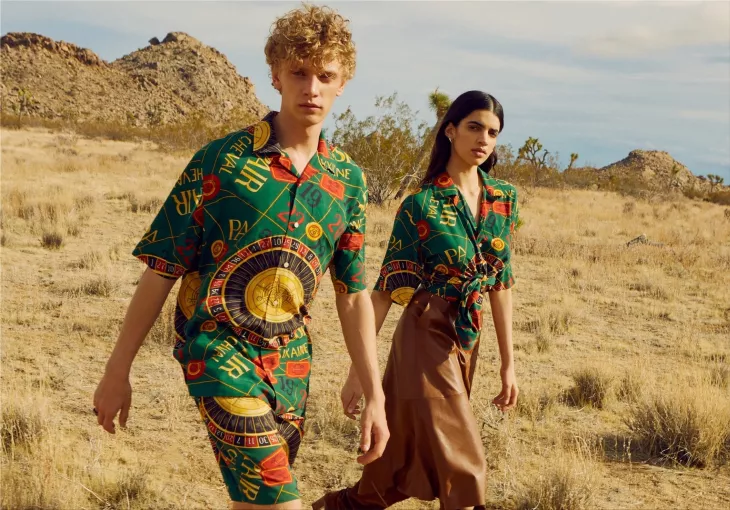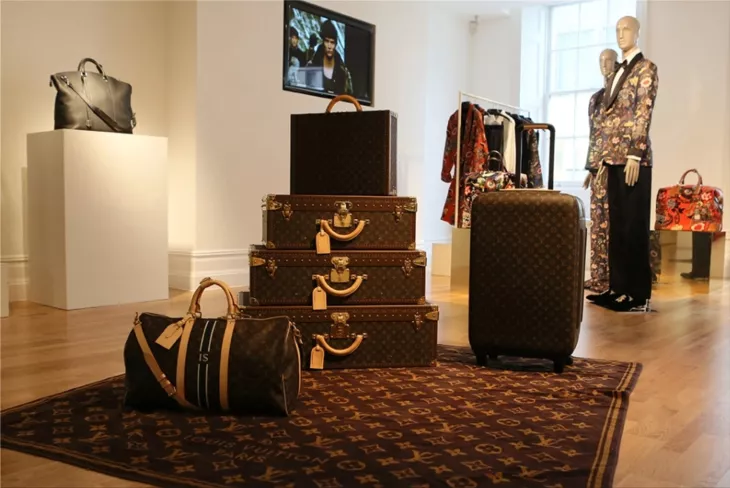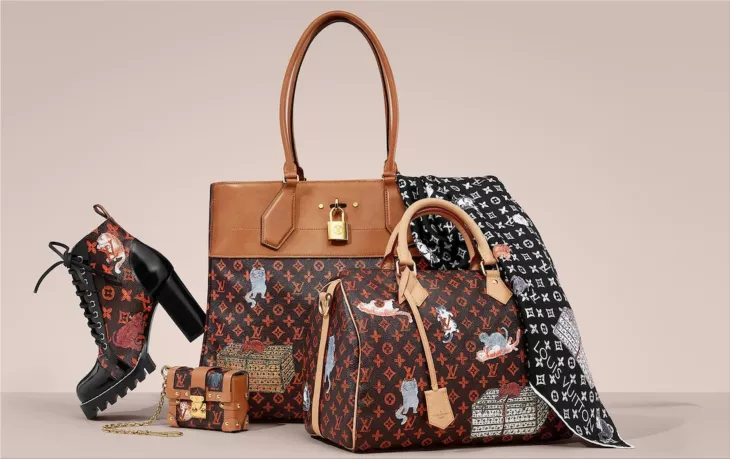Axios reported a prospective fashion takeover by French luxury juggernaut LVMH of Ralph Lauren Corporation, a US fashion powerhouse with more than $9.5 billion market capitalization. Ralph Lauren Corporation's stock price surged in reaction to the rumor.
LVMH's hunger looks to be increasing, with the group's purchase activity progressively ramping up following its $15.8 billion acquisition of American jeweler Tiffany & Co. in early 2021.
LVMH purchased a 10% investment in Italian luxury brand Tod's in April 2021. Two months later, acquired the remaining 33% holding in the label from the Emilio Pucci founding family, achieving full ownership. The luxury conglomerate then announced an investment in experienced womenswear designer and former Celine employee Phoebe Philo to create her brand. Finally, in July, she bought a controlling share in streetwear brand Off-White, signaling its aim to boost its partnership with Virgil Abloh.
LVMH Luxury Ventures is also growing its investment portfolio, going beyond established companies such as those mentioned above and investing in younger firms such as New York designer brand Aimé Leon Dore and luxury blind box platform Heat. Each investment elevates the firm to a new level of prominence.
The Ralph Lauren Corporation, created in 1967 by American businessman Ralph Lauren, comprises many garment companies with product categories ranging from custom suits to home furnishings and three restaurants in Paris, New York, and Chicago.
Ralph Lauren, like its competitors, is reviving. According to the brand's FY2022 third-quarter results reported in February, all areas enjoyed double-digit growth in the quarter, with North America, the brand's largest regional market, outperforming expectations and displaying good momentum.
Consequently, the brand upped its full-year revenue forecast to 39 to 41% year-on-year growth, with a 13 percent operating margin. As a result, revenue for this year might range between $6.12 and $6.20 billion, based on the group's FY21 revenue, which ends in March 2021.
When reviewing some of the most significant M&A transactions in the luxury and haut fashion sectors following the outbreak of COVID-19, the price-to-sales ratio – a critical metric for determining the deal's worth – is often between three and four times. For example, VF Corp's $2.1 billion acquisition of streetwear brand Supreme in 2020 was estimated to add $500 million to company sales that year (corresponding to a P/S ratio of 4.2). Tiffany & Co. generated $4.38 billion in revenue in 2019, and LVMH paid $15.8 billion for the company (a P/S ratio of 3.6).
According to Ralph Lauren's prediction, if the group achieves more than $6 billion in sales by March, the proposal price will range between $18 billion to $24 billion, putting the purchase on pace to overtake Tiffany & Co. as the luxury industry's most significant acquisition.
The industry has reacted inconsistently. According to Forbes, Richard Kestenbaum of Triangle Capital, a corporate M&A advisory firm, Ralph Lauren's existing scale and sales offer an accretive purchase for LVMH, and LVMH's luxury savoir-faire might assist Ralph Lauren to boost its premium place in the market. However, others say that the company's complex brand portfolio will complicate the company's future operations under Ralph Lauren Corporate and a retail network centered on the mid-and low-end.
However, whether LVMH's paternalistic approach to M&A allows Ralph Lauren's brand vision to survive will influence the result of this prospective acquisition and the future trajectory of this American luxury giant.
Recently purchased brands have acted as a training ground for the next generation of the Arnault family. Following an acquisition, old executives often flee and are replaced by new executives — typically one of Arnault's heirs. This plan is a time-tested formula for success that the corporation has relied on again.
In 2013, LVMH bought an 80 percent ownership in Loro Piana. Pier Luigi Loro Piana and Sergio stepped down as Vice Presidents and were succeeded by Antoine Arnault, Chairman of the brand. When LVMH purchased German luggage manufacturer Rimowa in 2016, Dieter Morszeck, the founder's grandson, was named co-CEO with Alexandre Arnault, Arnault's 26-year-old son. When Tiffany & Co. acquired the company in January 2021, Alessandro Bogliolo, the firm's prior CEO, stepped down and was succeeded as President and Chief Executive Officer by Anthony Ledru, a former Executive Vice President of Louis Vuitton. Simultaneously, Alexandre Arnault departed Rimowa to become Executive Vice President, Products and Communication at Tiffany & Co.
Recent experience demonstrates that a firm acquired by LVMH will almost certainly undergo a comprehensive staff reorganization. However, would this also be the case for Ralph Lauren if the acquisition is completed?
Ralph Lauren, the group's creator, continues to serve as Executive Chairman and Chief Creative Officer. This Bronx-born perpetual cowboy is the house's cornerstone, crafting an American fantasy of postwar affluence via polo shirts, navy sport coats, and white Chino trousers. For almost 50 years, the brand has never veered from these elements.
Mr. Lauren, who is now 82 years old, has made no announcements regarding succession. Unlike the Arnault's, only David Lauren serves as Chief Branding and Innovation Officer and Vice Chairman of Ralph Lauren Corporation.
This is not to argue that the Lauren family is indifferent to the group's ancestors. A first-generation family business's most valuable brand asset is its founder. The process of finding a CEO successor to Ralph Lauren has been everything but easy.
Stefan Larsson, formerly the Global President of Old Navy, succeeded Ralph Lauren as CEO in September 2015. Larsson resigned after less than two years, telling analysts on a conference call that he and Mr. Lauren had worked "extremely hard to establish common ground" but finally chose to part ways owing to creative differences. Patrice Louvet, a former P&G executive, was appointed Group President and Chief Executive Officer in May 2017 and continues to serve in that capacity, reporting to Mr. Lauren.
Ralph Lauren looks to be sticking on as Executive Chairman for the time being to keep an eye on the Chief Executive, particularly while the fashion sector continues to recover from the pandemic's impact.
Beyond operational improvements, LVMH acquisition frequently results in a significant rebranding of the brand's image, product offers, and marketing tactics — look at today's not your mother's Tiffany & Co. Following Alexandre Arnault's appointment as Chairman and Chief Executive Officer of Tiffany & Co., the brand's former Chief Artistic Director and Chief Brand Officer resigned, as did the "old" Tiffany & Co. In addition, an LVMH acquisition may conflict with Mr. Ralph Lauren's goal for his namesake label, which looks to have remained significant to this all-American historical brand.
The success of the LVMH takeover strategy is also partly attributable to the acquired businesses' lack of opposition to its tactics. Dieter Morszeck and the Loro Piana brothers readily took a back seat, and Tiffany & Co. was never a family firm, to begin with, facilitating the changeover.
Not only does LVMH's possible acquisition of Ralph Lauren reflect the jockeying of two dynasties, Arnault and Lauren, but also the fusion of European and American fashion. As a result, Ralph Lauren, whose brand has invaded every part of an American's life, maybe a more accurate representation of the American luxury environment than Tiffany & Co. Balancing these two cultural settings may prove to be more difficult than anticipated and one that will likely be repeated soon by more stakeholders than simply LVMH Moët Hennessy Louis Vuitton and Ralph Lauren.





